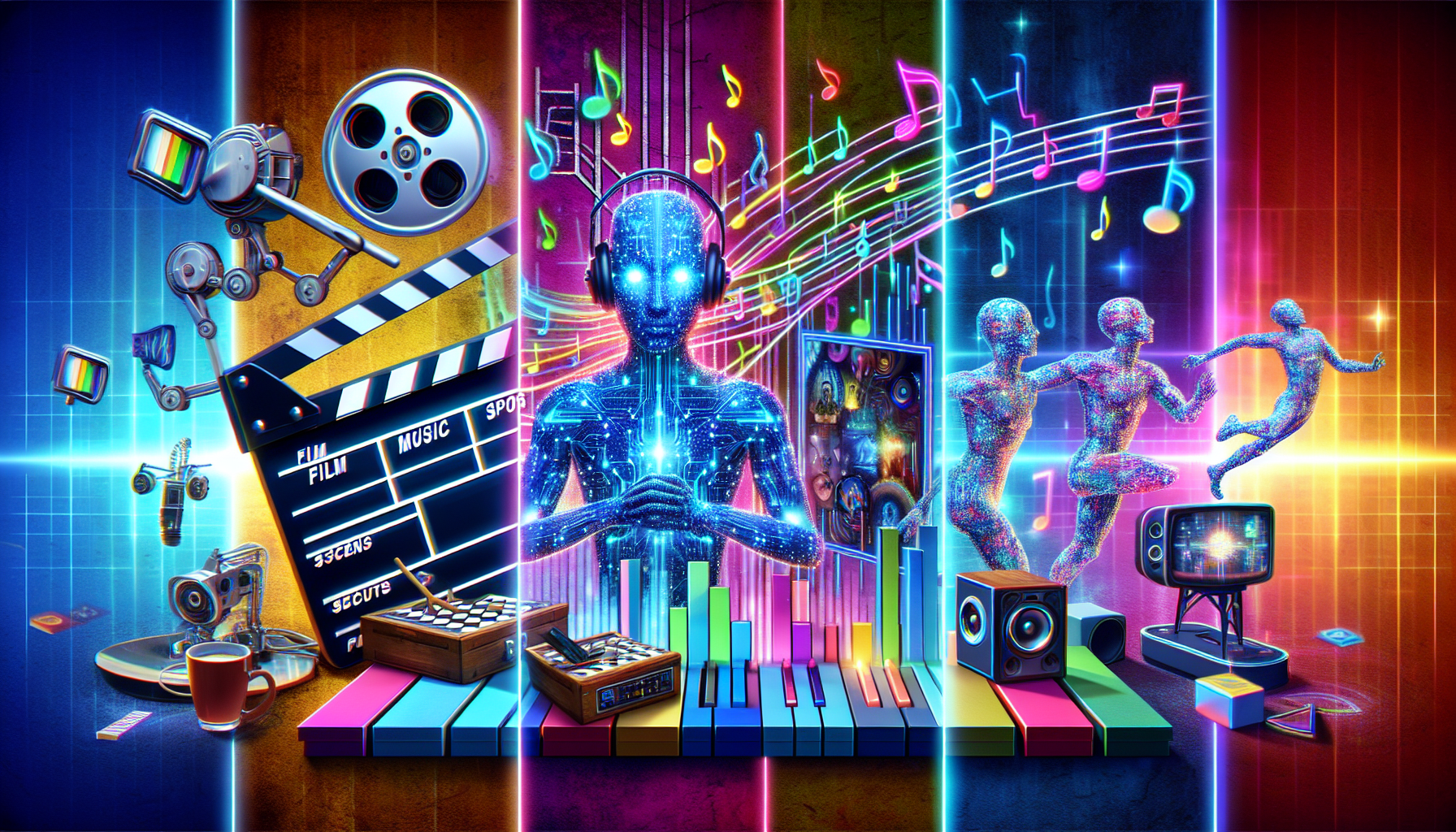
The Cinematic Revolution
Once upon a time, films were solely the realm of human creativity—cue the dramatic orchestra. But now, Generative AI has swaggered into Hollywood wearing sunglasses indoors. It’s been waving its magic wand over every aspect of film and TV production, from crafting screenplays with plot twists no one saw coming, to bringing virtual characters to life. Imagine a character who never flubs a line—AI’s got it covered! What does this mean for content creation’s future? It means we’re producing innovations faster than a cheetah on espresso.
Hold on to your popcorn, because Generative AI Cinema is now a legitimate category. Directors are teaming up with technologists to produce films that are part human, part silicon genius. Think of it like the buddy cop movie where one partner is an AI and the other just wants to get through the day without a holographic car chase. Critics and audiences alike are recognizing these creations as the next big thing, though they’re still figuring out who gets the Oscar acceptance speech.
A Tune-Up for the Music Industry
If Bob Dylan had a guitar that penned his lyrics, it would probably be named AI. In music production, AI is hitting all the right notes, with companies like Google and Adobe jazzing up the scene with AI music generators. The industry is busy discussing whether these tunes need a new kind of copyright—let’s call it Artificial Rhapsody. Licensing models are getting an overhaul faster than you can say chart-topper.
Then there’s the dance party in the Cloud where GEMA and friends are proposing licensing for AI-generated music. Picture a future where your favorite indie darling is collaborating with their own AI twin to drop an album, all while you ponder the philosophical question: Can a digital drummer have soul?
The Ethical Encore
As with anything groundbreaking, the introduction of AI into artistry comes with its own set of debates. While industry giants like Guillermo del Toro furrow their brows at the thought of an AI movie taking their spot on the marquee, others argue that AI’s real power lies in its ability to democratize storytelling. Emerging filmmakers now wield a free ticket to creativity’s rollercoaster—AI provides the safety bar.
Meanwhile, industry events are buzzing like a beehive with discussions about AI’s capabilities and ethical considerations. It’s like a giant potluck where everyone brings their own algorithm and hopes it pairs well with Guillermo’s skepticism potion. The cross-industry collaborations aim to balance creativity with legal responsibility, ensuring AI-generated content is as responsibly crafted as it is revolutionary.
The Intersection of Sports, Entertainment, and AI
Over in the sports arena, AI is changing up the game with smarter broadcasting techniques. No more layers of tedious analysis for commentators—AI now provides perfect halftime reports that even say, Well, the ref could have done better. From planning media campaigns to combatting fake news, AI’s role in sports broadcasting is evolving faster than you can shout, Touchdown! or Goal! depending on your passport.
As AI continues to stride through entertainment’s varied lanes with an air of futuristic confidence, it promises to leave everything it touches a little bit shinier and, hopefully, a pinch cheekier. Though AI’s creativity might be artificial, the ripples it creates could weave into the grand tapestry of next-generation artistry, one pixel, note, and frame at a time.






